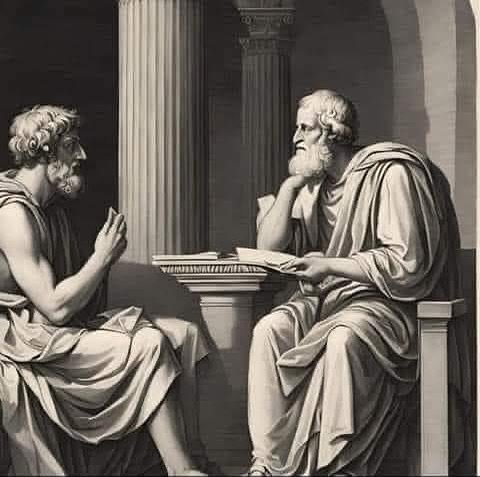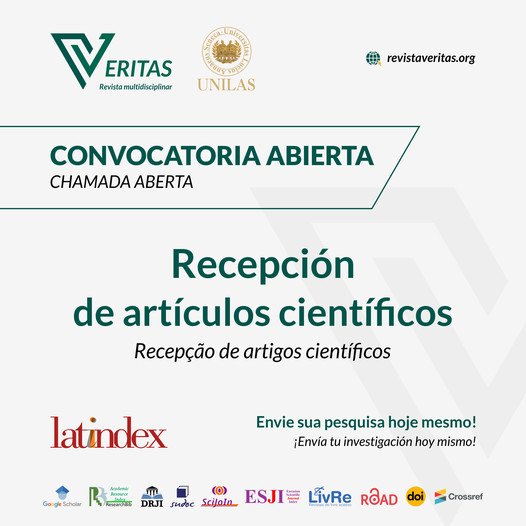Iniciating about the critical thinking and philosophy.
.jpeg)
ENG:
Talking about Philosophy is often tedious, since there is a certain general tendency to abuse this term, perhaps this is due to having left aside its origin. For the Greeks, concepts are what they mean, so it is important that we return to the etymology of the word to understand what it is about when we talk about philosophy. From there we see its position within the degrees of knowledge that are classically accepted by all, which we find in the simile of Plato's line.
This term is composed of two Greek words phileo and sophia, that is, love of wisdom, this love of wisdom is not a hasty reflection in the Greeks, since it is at the highest level of human knowledge.
Thus, Plato frames it in the presentation of the degrees of knowledge: philosophy is within the epitheme, as well as discursive thought, which puts it before beliefs and conjectures, which are within the doxa. But, let us see what Plato himself says about the degrees of knowledge in his work “Republic”, after having divided the degrees of knowledge, as we have said above, he himself says:
«You understood perfectly: now apply to the four sections these affections that are generated in the soul; intelligence, to the supreme; discursive thought, to the second; to the third assign belief and to the fourth conjecture; and order them proportionally, considering that the more they participate in the truth, the more they participate in clarity.»
The context is none other than the subject of the role of philosophers in the life of the polis, after demonstrating that the philosopher is the one who loves wisdom, because he seeks things in themselves, the truth and not opinion.
Therefore, what we will focus on at this time is the ordering according to the participation in the truth. Because, Plato before the gradation of knowledge spoke of the analogy between the sun and the truth. Therefore, he said the following:
«In the same way, what corresponds to the soul thinks: when it fixes its gaze on objects on which truth shines and what is intelligible, it knows and seems to have intelligence; but when it turns towards that which is submerged in darkness, which is born and perishes, then it pinpoints and perceives weakly with opinions that make it go here and there, and it gives the impression of not having intelligence.»
Therefore, for Plato the Idea of the Good is the cause of science and truth, and therefore, truth is wisdom, and makes it possible to know things. This in the philosophy of knowledge is the classic concept of «evidence», which allows things to be known, and also makes them true in themselves.
#philosophy
#plato
#greek
#good
#concept
#truth
ESP:
Hablar de Filosofía muchas veces es tedioso, ya que hay cierta tendencia generalizada de abusar de este término, quizás esto se debe a haber dejado de lado su origen. Para los griegos los conceptos son aquello que significan, por eso es importante que volvamos a la misma etimología de la palabra para comprender de que se trata cuando hablamos de filosofía. De allí veamos su posición dentro de los grados del saber que son aceptados de modo clásico por todos, el cual lo encontramos en el símil de la línea de Platón.
Este término está compuesto de dos palabras griegas phileo y sophia, es decir, amor a la sabiduría, este amar a la sabiduría no es una reflexión apresurada en los griegos, pues está en lo más elevado del conocimiento humano.
Así, la enmarca Platón en la presentación de los grados del saber: la filosofía está dentro de la epíteme, así como el pensamiento discursivo, que la anteponen a las creencias y conjeturas, que están dentro de la doxa. Pero, mejor veamos lo que dice el mismo Platón sobre los grados del conocimiento en su obra “República”, después de haber dividido los grados del conocimiento, tal como lo hemos dicho más arriba, él mismo dice:
«Entendiste perfectamente: ahora aplica a las cuatro secciones estas afecciones que se generan en el alma; inteligencia, a la suprema; pensamiento discursivo, a la segunda; a la tercera asigna la creencia y a la cuarta la conjetura; y ordénalas proporcionalmente, considerando que cuanto más participen de la verdad tanto más participan de la claridad.»
El contexto no es otro que el tema del papel de los filósofos en la vida de la polis, después de demostrar que el filósofo es el que ama a la sabiduría , porque busca las cosas en sí, la verdad y no de la opinión .
Por ello en lo que nos centraremos en estos momentos es en el ordenamiento es de acuerdo a la participación en la verdad. Pues, Platón antes de la gradación del saber habló de la analogía entre el sol y la verdad. Por eso, ha dicho lo siguiente:
«Del mismo modo piensa así lo que corresponde al alma: cuando fija su mirada en objetos sobre los cuales brilla la verdad y lo que es, inteligible, conoce y parece tener inteligencia; pero cuando se vuelve hacia lo sumergido en la oscuridad, que nace y perece, entonces pina y percibe débilmente con opiniones que la hacen ir de aquí para allá, y da la impresión de no tener inteligencia.»
Por lo tanto, para Platón la Idea del Bien es la causa de la ciencia y la verdad, y por ello, la verdad es sabiduría, y hace posible conocer las cosas. Esto en filosofía del conocimiento es el clásico concepto de «evidencia», que permite que las cosas puedan ser conocidas, y también hacen que sean verdaderas en sí misma.
#platon
#bien
#causa
#ciencia
#verdad

